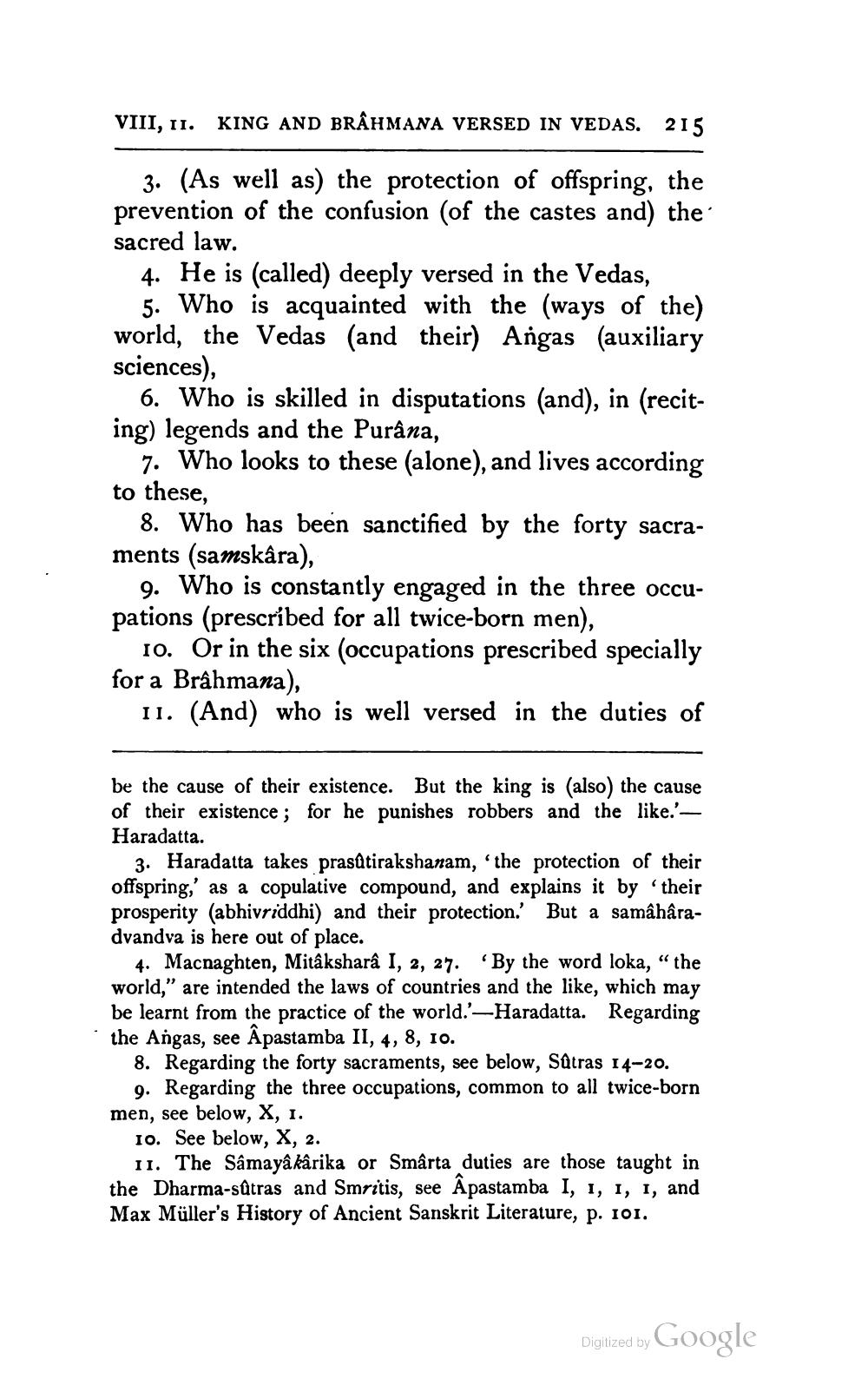________________
VIII, 11. KING AND BRÂHMANA VERSED IN VEDAS. 215
3. (As well as) the protection of offspring, the prevention of the confusion (of the castes and) the sacred law.
4. He is (called) deeply versed in the Vedas,
5. Who is acquainted with the (ways of the) world, the Vedas (and their) Angas (auxiliary sciences),
6. Who is skilled in disputations (and), in (reciting) legends and the Purâna,
7. Who looks to these (alone), and lives according to these,
8. Who has been sanctified by the forty sacraments (samskâra),
9. Who is constantly engaged in the three occupations (prescribed for all twice-born men),
10. Or in the six (occupations prescribed specially for a Brâhmana),
11. (And) who is well versed in the duties of
be the cause of their existence. But the king is (also) the cause of their existence; for he punishes robbers and the like.'— Haradatta.
3. Haradatta takes prasûtirakshanam, the protection of their offspring,' as a copulative compound, and explains it by their prosperity (abhivriddhi) and their protection. But a samâhâradvandva is here out of place.
4. Macnaghten, Mitâksharâ I, 2, 27. 'By the word loka, “the world," are intended the laws of countries and the like, which may be learnt from the practice of the world.'-Haradatta. Regarding the Angas, see Âpastamba II, 4, 8, 10.
8. Regarding the forty sacraments, see below, Sūtras 14-20.
9. Regarding the three occupations, common to all twice-born men, see below, X, 1.
10. See below, X, 2.
11. The Samayâ kârika or Smarta duties are those taught in the Dharma-sūtras and Smritis, see Apastamba I, I, I, I, and Max Müller's History of Ancient Sanskrit Literature, p. 101.
Digjized by Google




